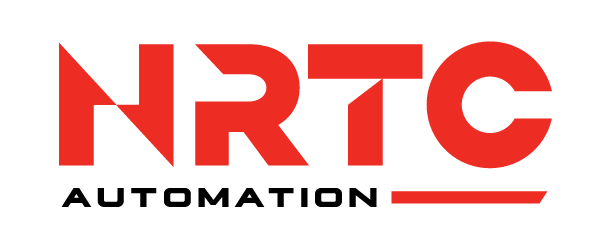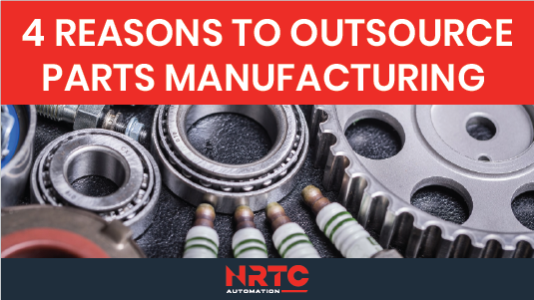4 Reasons to Outsource Parts Manufacturing
Save precious resources and meet your production goals by outsourcing your parts manufacturing.
Businesses should always be on the lookout for ways to trim production costs. One way of doing that is to outsource your parts manufacturing.
Outsourcing work has several advantages that will not only result in cost savings but will also encourage company growth.
Learn more about the benefits of outsourcing parts manufacturing and NRTC Automation’s Service Parts Manufacturing below.
Outsource your parts manufacturing
When should you outsource your parts manufacturing?
Outsourcing parts manufacturing provides companies with space to grow. You can outsource your parts manufacturing whether you are a small business or an established corporation.
If you’re wondering if you should outsource manufacturing, take a look at your costs, as well as focus and flexibility.
COSTS
Two major costs associated with parts manufacturing are labor and overhead.
Labor costs can come from both human labor and robot labor. Human labor costs include employee wages, benefits, payroll, and insurance. The costs of robot labor are energy, maintenance, repairs, and tooling and engineering.
If you are spending more than you’d like on labor, then find financial relief by outsourcing.
FOCUS AND FLEXIBILITY
Two other factors you should consider when thinking about outsourcing is your production focus and flexibility.
Focus and flexibility in manufacturing are important to avoid spending resources on tasks that don’t align with your company mission. By having the flexibility to focus on the important tasks, your business has more room to grow and improve your product.
Benefits of outsourcing parts manufacturing
Secure a well-established and trustworthy company to experience the following benefits of outsourcing your parts manufacturing.
1. COSTS SAVINGS
As mentioned, the cost savings that accumulate from outsourcing manufacturing is a major benefit for companies of all sizes.
Outsourcing to a company that uses inexpensive and ethical labor solutions, such as robotic work cells, can provide lower labor costs without humanitarian complications.
Plus, you’ll save on overhead by reducing the utilities and maintenance needed to support your production line.
2. IMPROVED EFFICIENCY
Another benefit of outsourcing is improved efficiency. Your production process becomes more streamlined when you remove tasks that slow the line.
Additionally, fewer resources are wasted when extra parts are removed from the production process.
3. SCALABILITY AND DEMAND
When companies experience a boost in demand, outsourcing allows them to meet customer orders without placing a strain on internal processes.
If demand is consistent, companies can scale their production accordingly.
4. ROOM TO INNOVATE
Finally, outsourcing manufacturing leaves businesses with room to innovate their products.
Access to resources that would have otherwise been devoted to parts manufacturing affords companies the ability to prototype and test their products to improve quality.
Become competitive by focusing on what matters.
Devote your time and money to what is important: developing your company, improving your product, and building relationships with your customers.
By outsourcing your parts manufacturing, you can meet more of your production goals while spending less on resources to achieve them.
LET NRTC AUTOMATION MANUFACTURE YOUR SERVICE PARTS.
NRTC Automation offers Service Parts Manufacturing so you experience all the benefits of outsourcing with a company trusted by top auto manufacturers around the world.
We are dedicated to providing high-value industrial automation and manufacturing equipment solutions to all our customers. From decommissioning and tear out to industrial robotic training services to custom flexible work cells, NRTC is the key to integrate your workplace.
Schedule a free consultation with us today to learn more.

